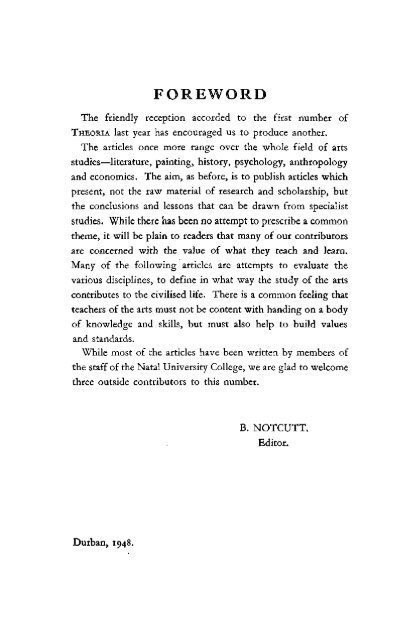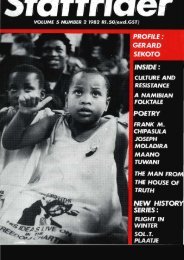Theoria - DISA
Theoria - DISA
Theoria - DISA
Create successful ePaper yourself
Turn your PDF publications into a flip-book with our unique Google optimized e-Paper software.
FOREWORD<br />
The friendly reception accorded to the first number of<br />
THEORIA last year has encouraged us to produce another.<br />
The articles once more range over the whole field of arts<br />
studies—literature, painting, history, psychology, anthropology<br />
and economics. The aim, as before, is to publish articles which<br />
present, not the raw material of research and scholarship, but<br />
the conclusions and lessons that can be drawn from specialist<br />
studies. While there has been no attempt to prescribe a common<br />
theme, it will be plain to readers that many of our contributors<br />
are concerned with the value of what they teach and learn.<br />
Many of the following articles are attempts to evaluate the<br />
various disciplines, to define in what way the study of the arts<br />
contributes to the civilised life. There is a common feeling that<br />
teachers of the arts must not be content with handing on a body<br />
of knowledge and skills, but must also help to build values<br />
and standards.<br />
While most of the articles have been written by members of<br />
the staff of the Natal University College, we are glad to welcome<br />
three outside contributors to this number.<br />
Durban, 1948.<br />
B. NOTCUTT.<br />
Editor.
















